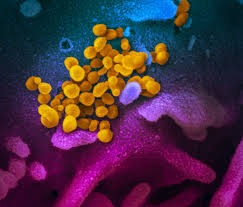New Delhi, April 28 (IANS) Undiagnosed immune deficiency is significantly rising among children under the age of five in India, said doctors here on Sunday, as part of the World Primary Immunodeficiency Week.
Every year, April 22 to 29 is observed as World Primary Immunodeficiency Week. It aims to raise awareness about Primary immunodeficiencies (PIs), also known as inborn errors of immunity (IEI) — a group of 450 rare and chronic conditions where a part of the body’s immune system is missing or does not function correctly.
Dr Gaurav Kharya, Director, Department of Bone Marrow Transplant and Cellular Therapy, Indraprastha Apollo Hospital, New Delhi, told IANS that the prevalence of primary immunodeficiency disorders (PIDs) is rising in India.
“These are potentially fatal genetic conditions that affect a child’s immune system, making them more susceptible to infections, autoimmunity, and malignancies,” he explained.
While there is no nationwide data on the prevalence of PIDs in India, statistical projections claim that there could be more than one million patients with PIDs in the country.
Dr Sagar Bhattad, Consultant – Paediatric Immunology & Rheumatology, Aster CMI Hospital, Bangalore, told IANS that over the past seven years, the hospital has identified more than 450 children suffering from rare and complex immune deficiency diseases.
“Whereas, a decade ago, the number was limited to 1-2 cases per month, which has now increased to 10-12 every month — a significant five-fold increase. In the past year alone, over 125 diagnoses were made, and experts predict this number to rise substantially in the coming years.
“It is estimated that before 2004, less than 50 cases of immune deficiency were identified nationally. This number has risen dramatically, with an estimated 300-500 cases diagnosed in 2014 and a further increase to 2,500-3,000 cases projected in 2024. This represents a staggering 300-400 per cent increase over the past decade,” Dr Sagar said.
The doctors blame lack of awareness about the conditions as well as treatment facilities to be a major reason for the rise in PIDs.
“These genetic conditions are more common in communities that practise consanguineous marriages. Many cases of immunodeficiency go undiagnosed due to a lack of facilities and awareness, especially in rural areas,” Dr Gaurav said.
“The lack of awareness and diagnostic facilities are often the reasons why these patients do not reach tertiary care centres where they can be treated for these disorders,” he explained.
The doctors stressed the need for recognising the signs and symptoms that can help in early diagnosis, as well as better outcomes. Genetic testing during pregnancy can be key to identifying potential problems and preventing recurrence in future pregnancies.
According to Dr Gaurav, bone marrow transplant (BMT), which replaces the defective immune cells of the patient with healthy cells from a compatible donor, has emerged as a potentially curative treatment for several types of primary immunodeficiencies.
“If a child falls ill repeatedly and requires frequent antibiotics, it could be a sign of a serious genetic immune problem. These conditions can affect multiple children in the same family,” Dr Sagar said.
“By identifying these conditions at early stages, children can receive the targeted treatment they need to avoid frequent infections and the overuse of antibiotics,” he said, calling for a wider availability of affordable genetic testing to enable earlier diagnoses and improve treatment outcomes.
“By working together, we can ensure that no child misses out on a healthy life due to an undiagnosed immune deficiency,” the doctor said.
–IANS
rvt/sd/kvd


Comments are closed.